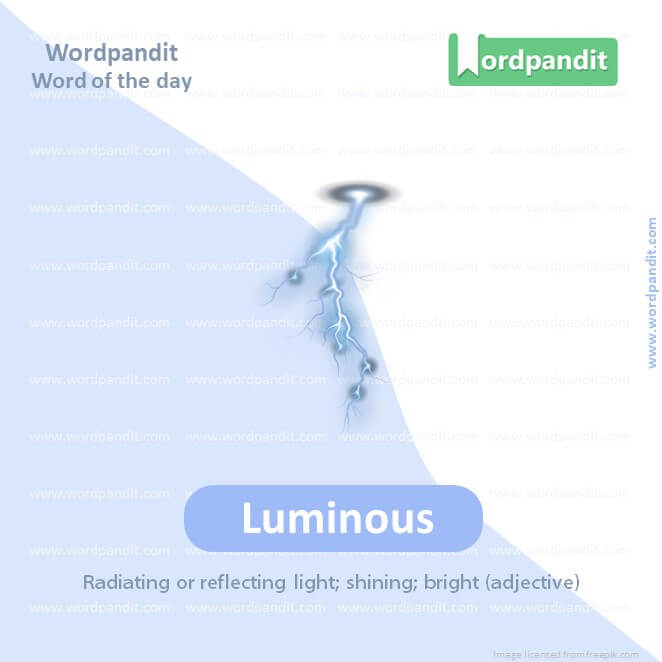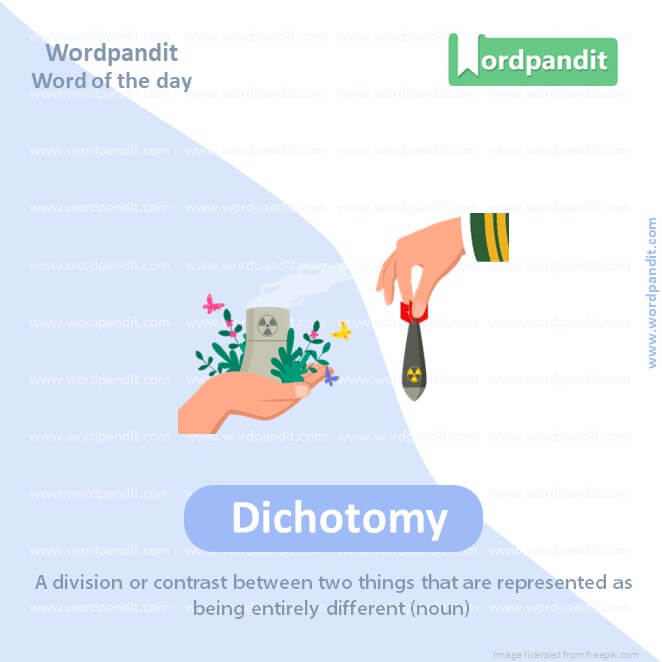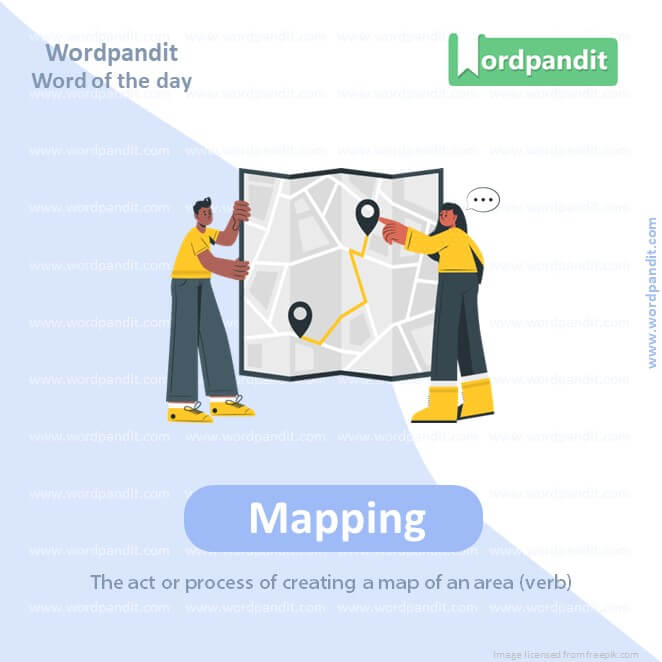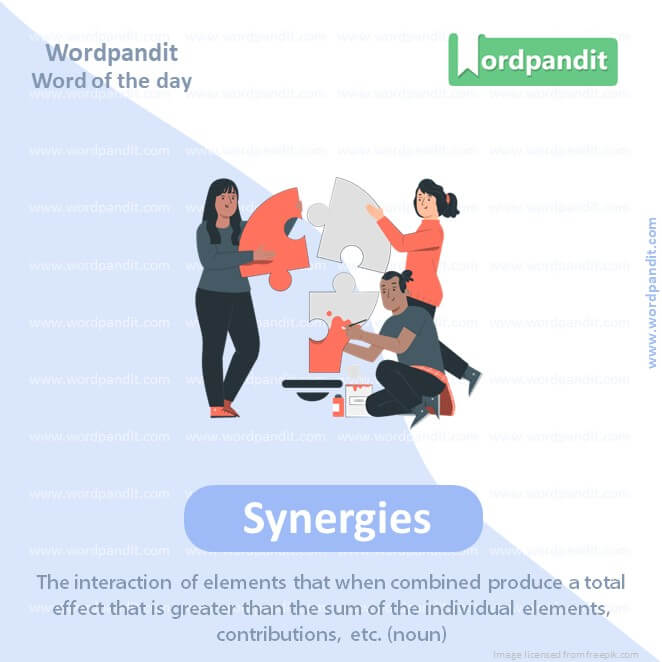Daily Vocabulary Words: List of Daily Used Words
Hi there. Welcome to this special section @ Wordpandit.
Our endeavour here is straightforward: highlighting important daily vocabulary words, you would encounter in The Hindu. This is your repository of commonly used words; essentially, we are posting a list of daily used words. Hence, this has significant practical application as it teaches you words that are commonly used in a leading publication such as The Hindu.
Visit the website daily to learn words from The Hindu.
WORD-1: Unopposed
CONTEXT: Getting elected unopposed is perfectly legal in the existing provisions of electoral laws and practice. It is also thrilling.
SOURCE: The Hindu
EXPLANATORY PARAGRAPH: Imagine being in a race where you are the only one running. Since no one else is competing against you, you win easily. This situation is called “unopposed.” It means not having any competition or opposition.
MEANING: Not opposed or resisted by anyone (adjective).
PRONUNCIATION: un-uh-POHZD
SYNONYMS: uncontested, unchallenged, sole, alone, exclusive
USAGE EXAMPLE:
1. She won the election unopposed.
2. The proposal was passed unopposed in the meeting.
3. He entered the competition unopposed.
4. Her position in the company is unopposed due to her expertise.
WORD-2: Affixation
CONTEXT: The returning officer shall… cause a copy of the list of contesting candidates to be affixed in some conspicuous place in his office and where the number of contesting candidates is equal to, or less than, the number of seats to be filled, he shall, immediately after such affixation, declare under sub-section (2) or as the case may be, sub-section (3) of section 53 the result of the election in such one of the Forms 21 to 21B as may be appropriate….”
SOURCE: The Hindu
EXPLANATORY PARAGRAPH: Imagine using glue to stick a stamp on a letter. This action of attaching the stamp is similar to “affixation.” It means the act of attaching or adding something to something else.
MEANING: The action of attaching something (noun).
PRONUNCIATION: ah-FIK-say-shun
SYNONYMS: attachment, addition, appending, connection, fastening
USAGE EXAMPLE:
1. Affixation of the label is required before shipment.
2. The document needed affixation of a seal to be valid.
3. He demonstrated the correct method of affixation for the safety equipment.
4. Affixation of the correct postage is necessary to avoid delays.

WORD-3: Luminous
CONTEXT: what was conceived to be a progressive reform to influence the political culture hangs over the system like an “ineffectual angel, beating in the void his luminous wings in vain”.
SOURCE: The Hindu
EXPLANATORY PARAGRAPH: Imagine a firefly glowing in the dark night. This bright and shining light that the firefly gives off is called “luminous.” It means radiating or reflecting light; shining bright.
MEANING: Radiating or reflecting light; shining; bright (adjective).
PRONUNCIATION: LOO-mih-nus
SYNONYMS: radiant, bright, glowing, shining, brilliant
USAGE EXAMPLE:
1. The moon was luminous in the night sky.
2. She wore a dress with a luminous hue.
3. His luminous description captured everyone’s imagination.
4. The artwork was luminous and captivating.

WORD-4: Procurement
CONTEXT: the Election Commission of India bound to call upon the constituency to elect a person again as it happens when say in government procurement there are unresponsive bids or no bids are received?
SOURCE: The Hindu
EXPLANATORY PARAGRAPH: Imagine your school needs new books and sports equipment. The process of researching, selecting, and buying these items is called “procurement.” It means the action of obtaining or procuring something.
MEANING: The action of obtaining or procuring something (noun).
PRONUNCIATION: pro-KYUR-ment
SYNONYMS: acquisition, purchasing, buying, obtaining, sourcing
USAGE EXAMPLE:
1. The procurement of quality materials is crucial for the construction project.
2. She is responsible for the procurement of all office supplies.
3. The new software streamlines the procurement process.
4. Efficient procurement strategies can reduce overall costs.

WORD-5: Dichotomy
CONTEXT: This to my mind is the dichotomy that the present electoral process creates. It is designed to be pragmatic even if it appears not entirely fair.
SOURCE: The Hindu
EXPLANATORY PARAGRAPH: Imagine dividing a pie into two distinct and opposite parts, such as sweet and savory. This division into two very different parts is called a “dichotomy.” It means a division or contrast between two things that are entirely different.
MEANING: A division or contrast between two things that are represented as
being entirely different (noun)
PRONUNCIATION: dye-KOT-uh-mee
SYNONYMS: contrast, split, division, duality, separation
USAGE EXAMPLE:
1. The dichotomy between good and evil is a common theme in literature.
2. There is a growing dichotomy in public opinion on this matter.
3. The dichotomy between her private and public life was striking.
4. His speech explored the dichotomy between science and religion.
WORD-6: Embankment
CONTEXT: A man from the Sundarbans may be more impressed by a candidate offering low-paying but predictable jobs over one who has secured funds to build an embankment along a river.
SOURCE: The Hindu
EXPLANATORY PARAGRAPH: Imagine building a strong wall of earth along the sides of a river to prevent flooding. This wall is called an “embankment.” It’s used to hold back water or carry a roadway.
MEANING: A wall or bank of earth or stone built to prevent a river from flooding or to carry a roadway (noun).
PRONUNCIATION: em-BANK-ment
SYNONYMS: levee, dike, barrier, dam, bank
USAGE EXAMPLE:
1. They built an embankment to protect the town from flooding.
2. The train travels along the top of the embankment.
3. Severe weather caused part of the embankment to collapse.
4. Maintenance of the river embankment is crucial to ensure its integrity.
WORD-7: Anomalies
CONTEXT: it’s nearly impossible to blame climate change for anomalous weather over a short period and/or a small area, but it’s also true that climate change is imposing such anomalies over ‘newer’ areas and for longer durations — and making its presence felt in hard-to-predict ways.
SOURCE: The Hindu
EXPLANATORY PARAGRAPH: Imagine finding a purple orange in a box of normal orange-colored oranges. This purple orange is unusual and not what you expect, making it an “anomaly.” It means something that deviates from what is standard, normal, or expected.
MEANING: Something that deviates from what is standard, normal, or expected (noun).
PRONUNCIATION: uh-NOM-uh-lees
SYNONYMS: irregularities, exceptions, aberrations, oddities, peculiarities
USAGE EXAMPLE:
1. The scientist studied weather anomalies across the globe.
2. The financial report showed several anomalies that needed further investigation.
3. Genetic anomalies can sometimes lead to rare diseases.
4. The anomaly in the data was eventually traced to a technical error.
WORD-8: Perpetuating
CONTEXT: Despite its unique position to influence peace, the U.S. continues to play a paradoxical role, simultaneously capable of ending violence and perpetuating the status quo, as evidenced by its recent veto against full recognition of Palestine.
SOURCE: The Hindu
EXPLANATORY PARAGRAPH: Imagine telling the same family story at every gathering to make sure new generations remember it. This act of continuing the story is called “perpetuating.” It means making something continue indefinitely.
MEANING: Making something continue indefinitely (verb).
PRONUNCIATION: per-PET-chew-ay-ting
SYNONYMS: continuing, maintaining, prolonging, preserving, sustaining
USAGE EXAMPLE:
1. The film was criticized for perpetuating stereotypes.
2. They are taking steps to stop perpetuating harmful practices.
3. By sharing their history, they are perpetuating their culture.
4. The law aimed at perpetuating the founder’s charitable intentions.

WORD-9: Mapping
CONTEXT: The EPI may be quite comprehensive. However, one of its features of mapping exposes the unsustainability of our development processes.
SOURCE: The Hindu
EXPLANATORY PARAGRAPH: Imagine drawing a detailed map of your neighborhood, showing every house, street, and park. This process of creating a detailed representation is called “mapping.” It means creating a visual or systematic representation of an area or concept.
MEANING: The act or process of creating a map of an area (verb).
PRONUNCIATION: MAP-ing
SYNONYMS: charting, diagramming, plotting, schematizing, representing
USAGE EXAMPLE:
1. They are mapping the ocean floor to understand its topography.
2. The project involves mapping the genetic sequences of different species.
3. Urban planners use mapping techniques to design city layouts.
4. Mapping the brain’s activity is crucial for understanding neurological disorders.

WORD-10: Synergies
CONTEXT: Contestations of ideas and their synergies over centuries have made India hospitable for democracy.
SOURCE: The Hindu
EXPLANATORY PARAGRAPH: Imagine two musicians, each good on their own, but when they play together, the music is fantastic because they complement each other so well. This effect of creating something better together than separately is called “synergies.” It means the interaction or cooperation of two or more organizations, substances, or other agents to produce a combined effect greater than the sum of their separate effects.
MEANING: The interaction of elements that when combined produce a total effect that is greater than the sum of the individual elements, contributions, etc. (noun).
PRONUNCIATION: SIN-er-jeez
SYNONYMS: collaborations, cooperations, alliances, partnerships, combinations
USAGE EXAMPLE:
1. The merger created synergies that benefited both companies.
2. They are exploring synergies between their research and development teams.
3. The synergies achieved by the team led to innovative solutions.
4. Finding synergies in business can lead to significant cost savings.
Vocabulary Words in English
In the kaleidoscopic world of language, the thread of ‘vocabulary words in English’ weaves a rich tapestry. These words, the building blocks of communication, lend themselves to the eloquence and effectiveness of our speech and writing. Despite their significance, mastering ‘vocabulary words in English’ can sometimes be daunting, but with strategic approach, the process can be greatly simplified.
Learning ‘vocabulary words in English’ goes far beyond rote memorization. It requires an integrated approach that encompasses understanding and using the words. Consuming a diverse range of English materials such as novels, news articles, movies, music, and online content can acquaint you with words in actual use, helping you perceive both their meaning and usage in different contexts.
Furthermore, incorporating memory-enhancing techniques can add impactful strides to your journey of mastering ‘vocabulary words in English’. Methods such as the Leitner System or flashcards can bolster the memory retention of these words. Meanwhile, using mnemonic devices, associating words with unique stories or images, can help in retaining the ‘vocabulary words in English’ in long-term memory.
Another key to deciphering ‘vocabulary words in English’ is by practicing them in real-world contexts. Incorporate the new words into your daily conversations, written emails, or social media posts. Not only will this reinforce the meanings and applications, but also boost your confidence in using them.
In essence, understanding ‘vocabulary words in English’ is a continual journey that calls for persistent commitment, diverse learning approach, and ample practice. As you indulge in this exploration, you will find your command over the ‘vocabulary words in English’ becoming stronger, leading to more confident and dynamic communication. Remember – in the world of language, words are your faithful companions, and the more you engage with them, the more they’ll reveal their richness to you.










